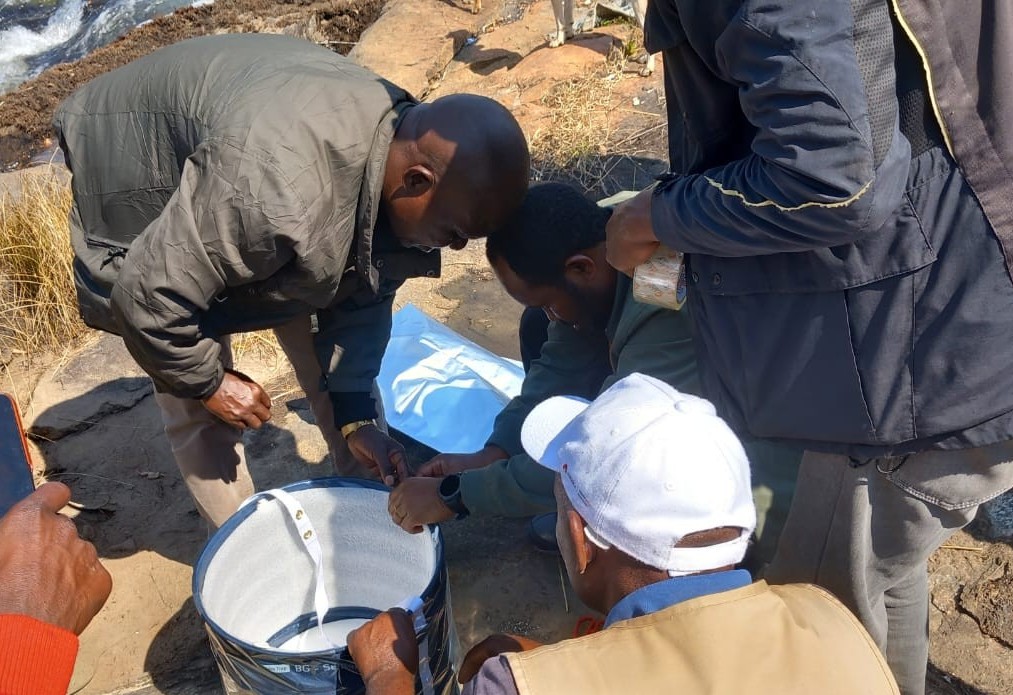The effective control and elimination of neglected tropical diseases requires innovative tools and approaches such as scoping alternative treatments to be used for mass drug administration campaigns. In Bié Province, Angola, this means the launch of a new study to compare two treatments for onchocerciasis (commonly known as river blindness).
Transmitted by black flies that breed in rapidly flowing rivers, onchocerciasis is a public health threat to communities where it is endemic and causes symptoms such as severe itching, disfiguring skin conditions, and visual impairment including permanent blindness.
In June, the Ministry of Health with MENTOR support began a comparative study to assess the impact of moxidectin versus ivermectin, as part of a mass drug administration campaign in most at risk villages in the province.
“Moxidectin is a highly promising agent that could fill gaps in disease control and accelerate the goals of the WHO NTD roadmap 2021-2030, which aims to eliminate onchocerciasis and control other diseases.” – Teresa Nóbrega, MENTOR Country Director, Angola
Initial activities included mapping villages in the areas selected for the study, and entomological surveys in black fly breeding sites identified during the environmental assessment and in populated areas within a 10km of these sites.
Parasitological training, a prevalence study, an acceptability survey, and mass drug administration campaign will follow including 52,000 people from 160 villages, following the best practices and ethics committee guidance.
“We are excited to support the generation of essential evidence on the role that moxidectin can play in MDA campaigns to accelerate onchocerciasis elimination.
“Moxidectin acts similarly to ivermectin but has been found to significantly maintain low microfilaria levels after 18 months after taking it* and may also have advantages in the control of other neglected tropical diseases such as soil-transmitted helminths and scabies,” says Teresa.
The study is funded by the Clinical Trials and Cohort Studies Grant, National Health and Medical Research Council (NHMRC) Australia, in partnership with the Ministry of Health, Angola and the Kirby Institute, UNSW Sydney.
*From study in the Lancet Journal (link: https://lnkd.in/etEa4FXe)
- News
New study to compare onchocerciasis treatments
- Kathryn Johnson

